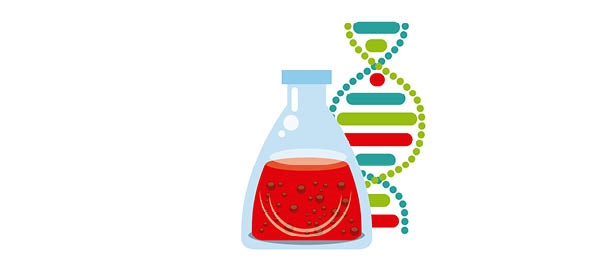
Certain types of cancer, iron overload and a collection of other hereditary genetic diseases can be diagnosed with DNA tests.
Heart and blood vessel diseases
The specific diseases and genetic risk factors for which DNA tests can be done, include:
- Familial hypercholesterolaemia (FH, with a defective LDLR gene).
- Familial defective apolipoprotein B-100 (defective ApoB gene).
- Dyslipidaemia (ApoE gene).
- Venous thrombosis.
- Other risk factors, including elevated homocysteine levels and elevated iron levels.
How can these tests help?
With the help of DNA tests, those at high risk for developing heart disease, can be identified long before symptoms can be seen. It is very likely that adults with blood cholesterol levels above 7.5 mmol/litre have defective LDLR genes. The importance of genetic tests shouldn't be underestimated, especially as less than five percent of South Africans with familial hypercholesterolaemia have actually been diagnosed.
People with moderately high blood cholesterol levels may have mutations in their ApoB or ApoE genes.
If the specific DNA defect is known, optimal treatment can be administered immediately.
Up to 50 percent of patients with heart disease don't fall into the conventional risk factor category. Genetic tests can possibly help determine how their risk for a heart attack can be lowered.
Individuals with a defective gene that leads to elevated homocysteine levels can lower their risk for heart disease by supplementing their diets with folic acid and Vitamin B.
Types of cancer
- Breast cancer.
- Familial colorectal cancer.
- Genetic risk factors for several types of cancer, including cancer of the oesophagus, bladder and breast.
How can DNA tests help?
DNA tests can detect cancer at a very early stage. With regular monitoring and preventative surgery (as in the case of colon polyps), the fatal spread of the cancer can be prevented and the disease can be effectively controlled.
Research has also indicated that people who display certain gene defects – like the p53 gene defect – are more susceptible to cancer. These people can possibly prevent cancer by cutting carcinogens, present in certain types of food like cured meat, burnt toast and fatty food.
Iron overload
Hereditary haemochromatosis has a wide rage of symptoms and a clinical diagnosis is not always crystal clear. The disease is characterised by chronic fatigue, high risk for cancer, liver damage, diabetes, arthritis, heart problems, impotence and infertility.
A diagnosis of hereditary haemochromatosis is now possible with DNA tests, where liver biopsies were previously used. Healthy people who carry this defective gene can prevent the symptoms of the disease by simply donating blood on a regular basis.
Other diseases
Other genetic diseases that can be detected early with DNA tests, include porphyria, cystic fibrosis, Gaucher's disease, familial Mediterranean fever, beta-thalasaemia, sickle cell anaemia, certain rheumatoid diseases, lactose intolerance (adult type), and Crohn's disease.
Genetic tests can confirm a clinical diagnosis and can identify the disease early in other family members. This is important as early diagnosis makes preventative measures and early, correct treatment possible.





 Publications
Publications
 Partners
Partners














